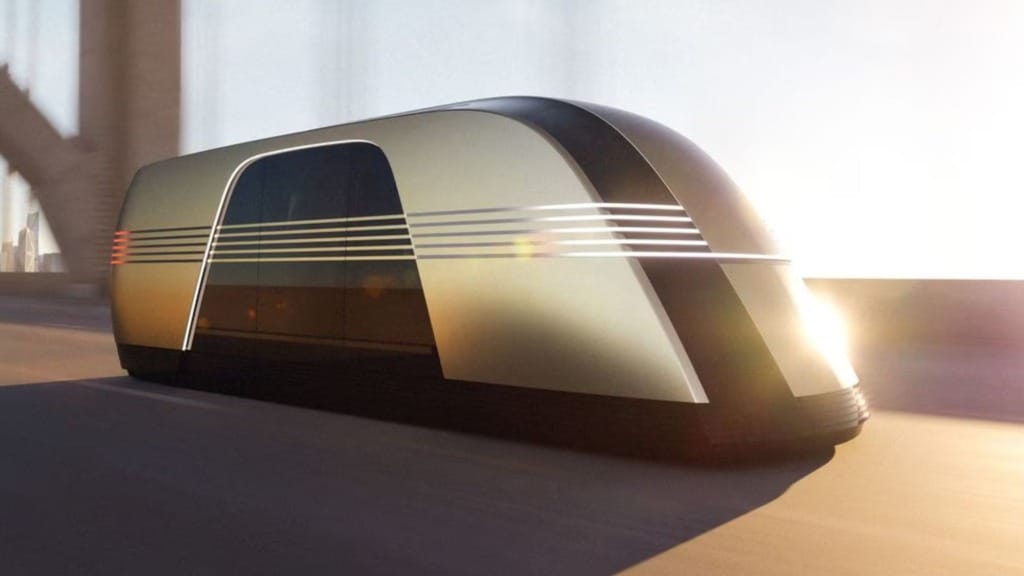Tesla unveils its futuristic Cybercab robotaxi
Tesla reveals its Cybercab robotaxi at the "We, Robot" event, showcasing affordable autonomous transport and future ridesharing plans.

Tesla has officially revealed its latest innovation, the Cybercab robotaxi, during the “We, Robot” event at Warner Bros. Discovery’s studio in California. The unveiling comes just six months after CEO Elon Musk hinted at plans for the autonomous vehicle. Musk arrived at the event riding in the Cybercab, which stood out for its lack of steering wheels or pedals, symbolising Tesla’s shift toward fully autonomous transport. “There’s 20 more where this came from,” Musk told the audience, emphasising the scale of the new project.
Musk spoke at length about the inefficiencies of modern transport, highlighting how most vehicles remain idle for much of the day. He explained that autonomous cars, such as the Cybercab, could change this by being constantly in use. “With autonomy, you get your time back… Autonomous cars are going to become 10 times safer,” he added.
Affordable and efficient transportation
One of Musk’s key points during the presentation was the Cybercab’s low operating cost. He projected that the running cost of the robotaxi would be as low as 20 cents per mile, and with taxes included, this could rise to 30-40 cents per mile. This would make the cost of autonomous transport competitive with or even cheaper than mass transit options. He also confirmed that the Cybercab will be available for purchase, and Tesla expects to sell it for under US$30,000.
In Musk’s vision of the future, individuals could own multiple Cybercabs and manage them as part of a ridesharing fleet. This would allow owners to generate income by offering rides to others through a Tesla-managed network. When asked about the timeline for availability, Musk revealed that the company is focussing on rolling out fully autonomous, unsupervised Full Self Driving on Tesla’s Model 3 and Model Y vehicles in Texas and California. He optimistically suggested that the Cybercab could be in production before 2027. Still, he admitted his timelines are often ambitious, referencing a past statement from 2019 when he predicted Tesla would have “over a million robotaxis on the road” within a year.
Cutting-edge technology and future plans
Tesla’s Cybercab technology relies on AI and vision systems, and unlike competitors such as Waymo, the company has moved away from using radar and sensors. This allows Tesla to keep the costs of manufacturing the vehicle low, a crucial factor in making autonomous transport more accessible. Notably, the Cybercab is equipped with inductive charging rather than a traditional charging port, streamlining the process of recharging the vehicle.
In April, Reuters reported that Musk had directed Tesla to go “all in” on robotaxis built on a small-vehicle platform. While the model was initially set to be revealed on August 8, the unveiling was delayed to allow for a design change to the vehicle’s front and to offer Tesla more time to showcase additional innovations. The Cybercab, which was presented in an all-silver finish, bears some resemblance to Tesla’s Cybertruck with its angular design. Notably, the vehicle lacks a rear windshield and features upward-opening doors, adding to its futuristic appearance.
Although Musk dismissed rumours that Tesla had scrapped its plans for a US$25,000 electric vehicle, reports have continued to circulate that development of the affordable model has been postponed.

At the event, Musk also briefly introduced another autonomous vehicle, the Robovan, capable of carrying up to 20 passengers or transporting goods. He highlighted that the Robovan could further reduce the cost of travel, particularly for large groups such as sports teams.
To round off the event, Tesla showcased its humanoid Optimus robots, which interacted with the audience and even served drinks. Musk said Tesla had made significant progress in robot development over the past year. He envisioned a future where these robots could help with tasks such as teaching, mowing lawns, and even becoming companions. Musk suggested that Tesla could sell these robots for between US$20,000 and US$30,000, marking another step in the company’s broader push toward automation and AI.














